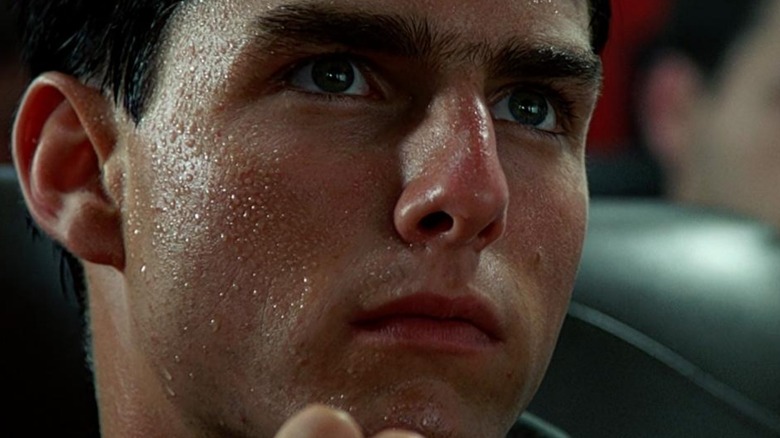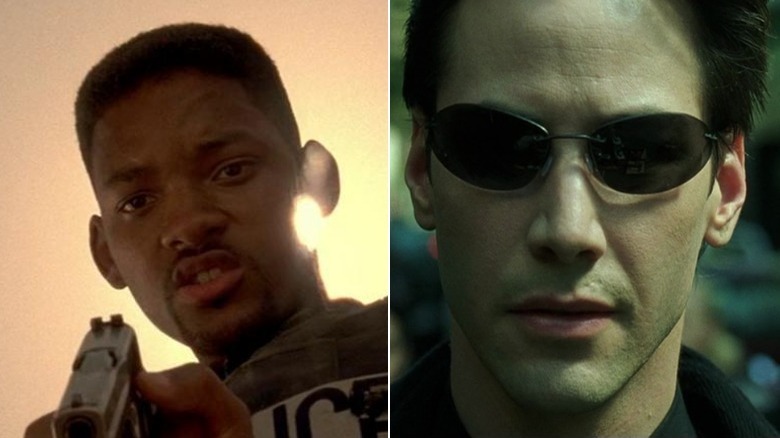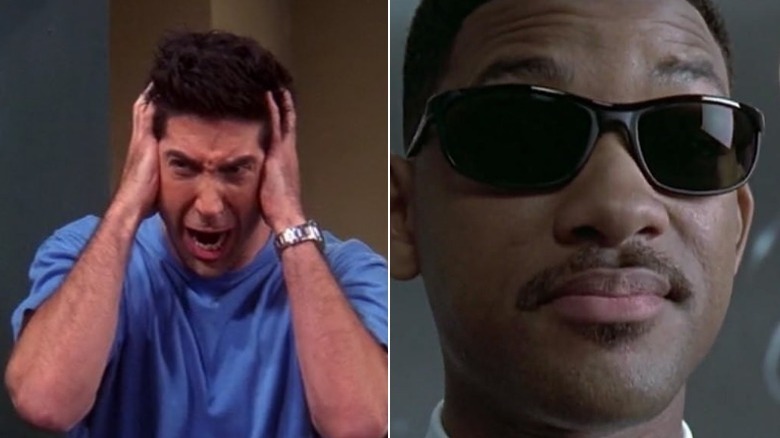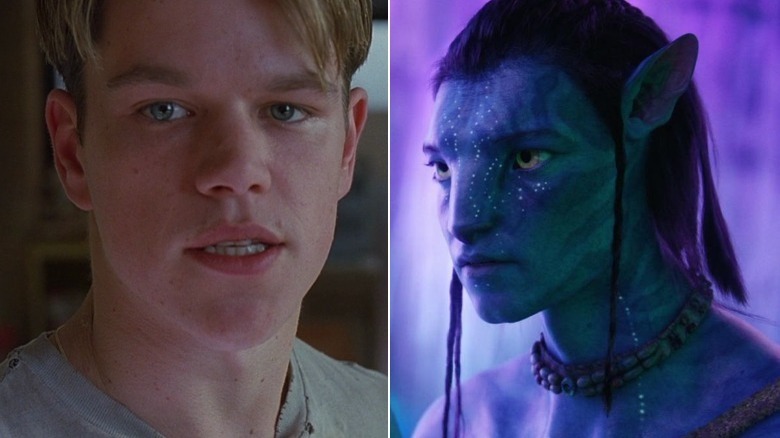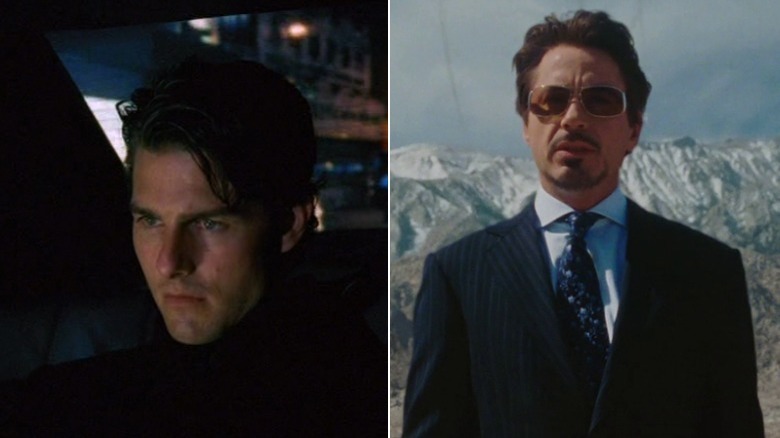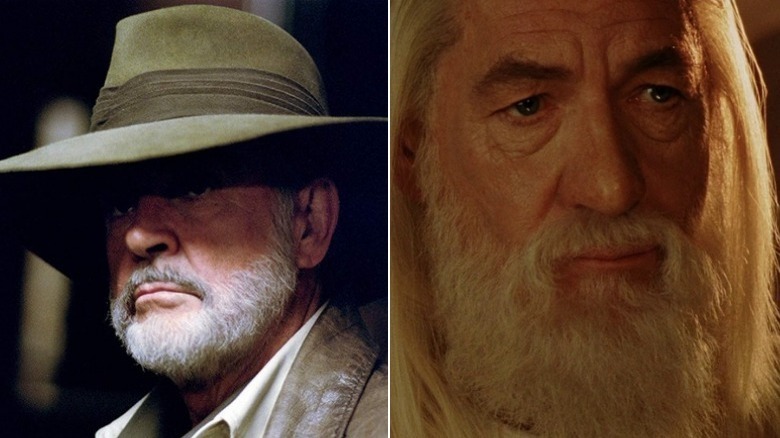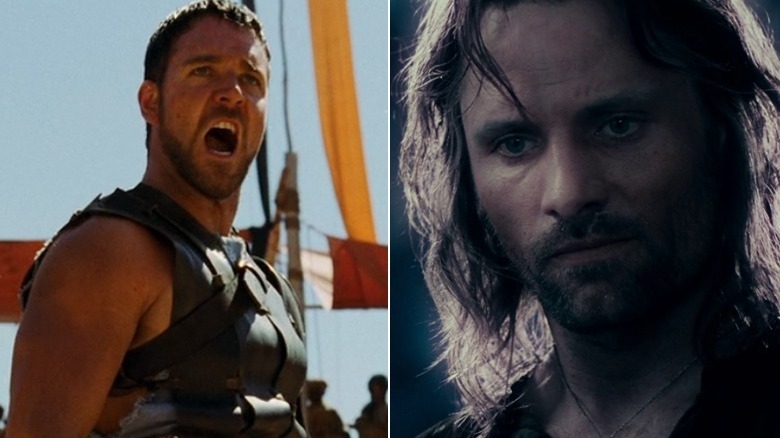Actors Who Turned Down Over $100 Million Dollars To Star In A Movie
Hollywood casting is a crapshoot. Casting is not just about finding the right person for a role; it's about finding actors who will work well together, with the director, and for the right price. There's also the issue of personal baggage to consider. Ultimately, casting is an art — not a science
From the actor's perspective, accepting or declining a role is equally perilous. So many things about whether a movie will succeed or flop are completely out of your control. Maybe the special effects will look weird and turn audiences off. Maybe you'll fall for your co-star and the on-set romance will be free publicity for the flick. Maybe you'll hate your co-star and that will somehow translate into scintillating chemistry on the screen.
Big name actors turn down movies all the time for all sorts of reasons — from gut instinct to scheduling conflicts. Here are some actors who said "no" to movies that turned out to be huge paydays for the actors who said "yes." Would these movies have worked with the star who turned them down? No way to tell. Still, these actors probably can't help but wonder what could have been.
Will Smith lost out on $250 million for the Matrix movies
Will Smith used to be king of July blockbusters. Nobody could open a movie like Mr. 4th of July. The Wachowskis were counting on that when they offered the part of Neo to Smith when "The Matrix" was in early development. The sisters pitched the film directly to Smith, who wasn't wowed by the presentation.
"They came in and they made a pitch for 'The Matrix,' and it turns out, they're geniuses," Smith said in his YouTube storytime. "There's a fine line in a pitch meeting between genius and what I experienced in the meeting." Unenthused by the Wachowskis' pitch, Smith decided to do "Wild Wild West" instead. Whoops. According to The Hollywood Reporter, the "Matrix" movies wound up earning Keanu Reeves a combined $250 million.
Although Smith has regrets on a personal level about not doing the movie, he thinks his passing on the project was artistically for the best. "Keanu was perfect. Laurence Fishburne was perfect. If I had done it, because I'm black, then Morpheus wouldn't have been black — they were looking at Val Kilmer," he said. "I was gonna be Neo and Val Kilmer was gonna be Morpheus. I probably would've messed 'The Matrix' up. I did y'all a favor!" Luckily Smith had a blockbuster sci-fi trilogy of his own to fall back on.
David Schwimmer said No to Agent J
Will Smith has David Schwimmer to thank for even being asked to do "The Matrix." If Schwimmer hadn't turned down the role of Agent J in "Men in Black," Smith wouldn't have had one of his biggest box office successes to date. Schwimmer was offered the part when he was prepping to direct his Chicago theater friends in their first movie. "I just said, 'I can't. These are my closest friends in the world, this is their first shot at a movie, my first shot at directing,'" he said in 2016. "It wasn't even like a choice, really. It was, 'I just can't.'"
Schwimmer's loyalty to his fellow actors cost him a movie franchise, and an eventual $100 million payday. That's how much Will Smith earned off of his share of gross receipts from "Men in Black 3," per The Hollywood Reporter. But that same solidarity is what got him his big "Friends" money. Back before the series was a monster hit, Schwimmer helped the six co-stars organize a collective bargaining front for their salaries, according to Saul Austerlitz's book "Generation Friends." When David Schwimmer was up for contract renegotiations during the third season of "Friends," he demanded that his five fellow actors all get equal pay. That collective bargaining power helped the Friends make $1 million per episode starting in 2002.
Matt Damon turned down 10% of Avatar's profits
Matt Damon told a Cannes Masterclass that he turned down "Avatar," despite James Cameron offering him 10% of the film's profits. (Matt Damon was full of anecdotes on this press tour, apparently.) "I will go down in history," Damon said. "You will never meet an actor who turned down more money." Damon turned down the film because he was in the middle of the "Bourne" movies, and leaving that franchise in the lurch wouldn't be the "moral" choice. Welp, "Avatar" became the highest grossing movie of all time, with a $2.847 billion box office haul. The AV Club did the math, and by their calculations, Damon lost out on over $200 million with that set of morals.
Damon isn't upset at his decision. At Cannes, he recalled telling the story to John Krasinski, who responded, "Nothing would be different in your life if you had done 'Avatar,' except you and me would be having this conversation in space."
Tom Cruise said, 'I am not Iron Man'
When "Iron Man" was just a glimmer in Jon Favreau's eye, he already had Robert Downey Jr. in mind for the part. Problem was, Downey was uninsurable. After a decade of drugs and arrests, Marvel Studios was not interested. Favreau told Rolling Stone that they said "under no circumstances are we prepared to hire him for any price."
Favreau, Kevin Feige, and other execs batted around other names until finally Favreau got his way. One name not batted around was Tom Cruise, who had turned down the part before Faveau even signed on to the project. "They ... came to me at a certain point, and you know, when I do something, I want to do it right. And, you know, if I commit to something, it has to be done in a way that I know it's going to be something special," Cruise said in 2005 (via E! Online). "And that ... as it was lining up, it just didn't feel to me like it was going to work."
It did work with Downey, who made between $396 million and $435 million from his participation in Marvel movies, according to CBR.
Sean Connery said no to being a wizard, yes to being a gentleman
"The Lord of the Rings" trilogy was not a guaranteed blockbuster. Before directing the trilogy, Peter Jackson was known best for low-budget splatter movies like "Brain Dead" and "Bad Taste." And Hobbits were for nerds — a passing reference in MST3K, not mainstream media.
Travel was Sean Connery's main objection to starring as Gandalf in the series. Connery was offered $30 million upfront, plus 15% of the box office haul to play the wizard. Connery didn't want to go all the way to New Zealand for a movie he didn't understand, and thus the film went to Sir Ian McKellan. Connery's deal would have been worth $450 million over the three movies.
Connery was so miffed with himself for that decision that he took a role in "The League of Extraordinary Gentlemen."
"I got offered 'The Lord of the Rings,' and I turned it down because I didn't understand it. I was offered 'The Matrix' — twice — and I turned it down because I didn't understand it," he was quoted as saying in Entertainment Weekly. "I don't understand this movie, but I'll be damned if I'm going to turn it down." That movie wound up losing $12 million at the box office, according to the New Zealand Herald.
Russell Crowe said Gondor needs no king
Russell Crowe also turned down a big payday to star in "The Lord of the Rings," but not because the travel turned him off. Crowe was born in New Zealand, and has spent most of his life living in Australia. No, Crowe passed on being Aragorn because the vibes were off.
Crowe told Howard Stern that the offer to play the Ranger of the North came right after his big success with "Gladiator." Everything got offered to him, as a matter of studio policy. "I didn't think Peter Jackson wanted me on that film," Crowe said. "Because he was forced into talking to me, because there was a moment in time when everyone wanted me in everything."
Crowe could tell that Jackson's heart wasn't in the pitch: "I am talking to him on the phone, it is like, I don't think he even knows what I have done. I just knew that my instinct was that he had somebody else in mind, which turned out to be Viggo, and he should be allowed to hire the actor who he wants."
The studio wanted Crowe, and was willing to offer 10% of the back end. Had Crowe forced the issue, Stern estimated that he would have made $100 million easy. Asked if he'd ever done the math himself, Crowe said he'd "Never thought about it."
